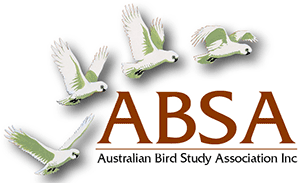Nightly and seasonal patterns of Barking Owl Ninox connivens loud calls at one site in Kakadu National Park, Northern Territory, Australia: 1981–82
| Posted: |
01/12/2015 |
| Author(s): |
Laurie Corbett |
This paper describes the frequency of Barking Owl
Ninox connivens loud (‘barking’) calls over one dry and one wet
season in 1981–82 at Kapalga within Kakadu National Park in the Northern Territory, Australia. A single recording site
was located on the fringe of the tree-less seasonally inundated black soil floodplain of the South Alligator River where
prey are common, especially Dusky Rats
Rattus colletti. Up to three pairs of Barking Owls were recorded calling in bouts
throughout the year but they called more frequently both hourly and nightly (mean 2 127 loud calls/night) in dry season
months (April–December) when they were probably breeding, than in the peak monsoon season months (January–
March, mean 212 loud calls/night). Barking Owls are relatively more common and more widely distributed in tropical
northern Australia than in temperate eastern and southern Australia where populations are localised, uncommon to rare
and declining mainly due to the decline and fragmentation of their habitat. It is therefore vital to leave suitable habitats
in the Northern Territory and elsewhere in the Top End of Australia to preserve current populations of Barking Owls and
their prey.
>> Download Abstract |
File Size: 275
>> Download Complete PDF | File Size: 0.9MB
